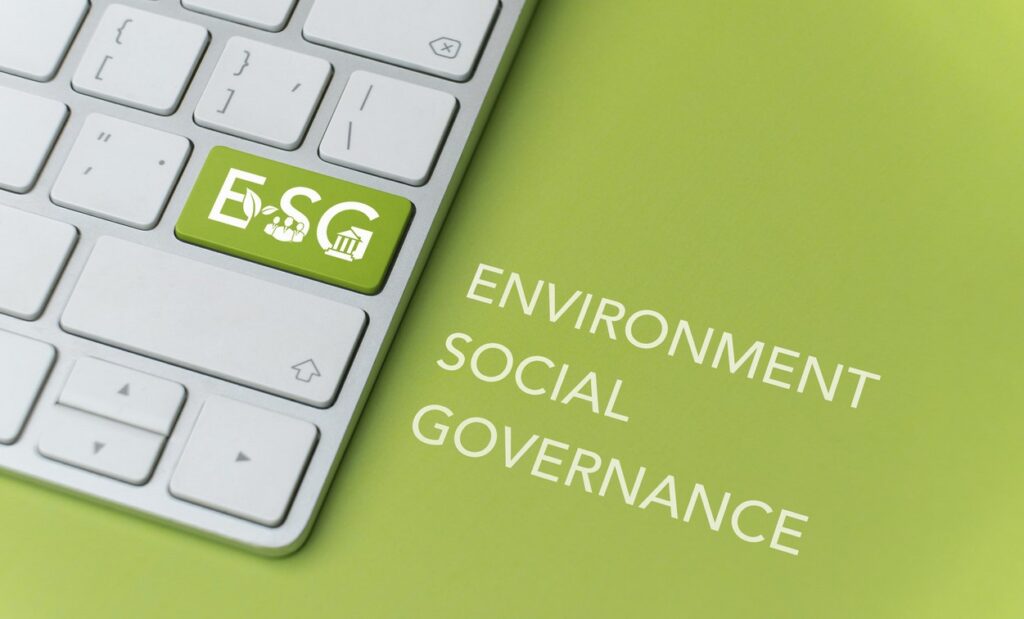
What’s New with I-RECs in 2026: What Businesses Need to Know Now?
For businesses in the UAE, particularly those with international supply chains, export exposure, or ESG-linked financing, the I-REC landscape in 2026

In today’s business world, the focus on Environmental, Social, and Governance (ESG) compliance has grown beyond mere regulation. It’s about ensuring that businesses are not just compliant but also aligned with the future of responsible corporate behavior. From minimizing environmental footprints to demonstrating social responsibility and sound governance, ESG compliance is now central to sustainable success.
But what exactly is ESG compliance, and why does it matter for your business?
Let’s dive deeper into the real-world challenges and solutions for businesses seeking to navigate this evolving landscape.
ESG stands for Environmental, Social, and Governance. Each pillar covers a distinct area that businesses must address:
Why it matters: ESG compliance signals to investors, regulators, and customers that your business is responsible and forward-thinking. As sustainability becomes a driving force in consumer choices and investment strategies, neglecting ESG can leave businesses vulnerable to both market and reputational risks.
Many companies see ESG as just another compliance task to check off. However, businesses that treat ESG as a strategic advantage are often better positioned for growth. Let’s explore why ESG compliance isn’t just important for regulatory reasons, but for future-proofing your business.
Despite its growing importance, achieving ESG compliance isn’t without challenges. Businesses across industries face several hurdles when implementing effective ESG strategies.
The landscape of ESG regulations is complex and varies significantly across regions and industries. For instance, while Europe has led the charge with comprehensive frameworks like the Corporate Sustainability Reporting Directive (CSRD), other regions have less formalized or fragmented approaches. Navigating these discrepancies can be challenging, especially for multinational companies.
Partnering with regional ESG compliance experts or adopting globally recognized frameworks like the Global Reporting Initiative (GRI) or the Task Force on Climate-related Financial Disclosures (TCFD) can help standardize your approach and ensure compliance across borders.
ESG compliance requires accurate data, from carbon emissions to workforce diversity metrics. Many businesses struggle with collecting this data across departments, let alone reporting it accurately. Traditional reporting systems often aren’t equipped to handle non-financial data, leading to inconsistencies or gaps.
Investing in ESG management software can streamline the collection, management, and reporting of ESG data. Integrating these systems into existing financial reporting infrastructure can also ensure consistency and accuracy. Working with third-party auditors to validate data can further enhance credibility.
Another challenge lies in aligning ESG goals with broader business strategies. Too often, ESG is seen as a standalone function, separate from core operations. This can lead to fragmented efforts and a lack of impact.
To make ESG truly impactful, it should be embedded into every aspect of the business. This means engaging all departments—from procurement to marketing—in the company’s sustainability goals. Appointing a Chief Sustainability Officer (CSO) or forming an ESG committee ensures cross-functional alignment.
Now that we’ve explored some of the challenges, let’s dive into actionable solutions that can help your business navigate ESG compliance effectively.
A materiality assessment is a process of identifying the most critical ESG issues for your business based on industry trends, regulatory requirements, and stakeholder feedback. Not all ESG factors are equally important to every company, so focusing on what truly matters is key to creating a targeted strategy.
Once you understand which ESG factors are most relevant to your business, it’s time to develop clear policies and set measurable goals. For example, if reducing carbon emissions is a top priority, outline specific targets for emissions reduction over a defined period. The same applies to social and governance goals—ensure that they are specific, measurable, achievable, relevant, and time-bound (SMART).
ESG is a collaborative effort. It requires buy-in from employees, customers, investors, and even regulators. Transparent communication about your ESG goals and regular updates on your progress will foster stakeholder trust. Internally, employee engagement is crucial—providing ESG training and creating a culture of sustainability can help align everyone toward common goals.
Transparency is crucial for ESG success. Whether reporting to investors, regulators, or the public, ensure that your ESG metrics are consistent, accurate, and accessible. Using globally accepted standards like the GRI or Sustainability Accounting Standards Board (SASB) will guide your reporting and boost credibility.
ESG compliance is no longer just a regulatory requirement—it’s a powerful tool for businesses to grow sustainably, build trust, and attract investment. By tackling the challenges of fragmented regulations, data collection, and operational alignment, your business can turn ESG into a competitive advantage.
With clear goals, strong governance, and transparent reporting, you’ll not only comply with today’s standards but also position your business for future success. IFRSLAB is here to help you navigate these challenges and turn ESG compliance into an opportunity for innovation and growth.
Ready to simplify your ESG journey? Let’s talk about how we can help your business thrive in this new era of sustainability.

For businesses in the UAE, particularly those with international supply chains, export exposure, or ESG-linked financing, the I-REC landscape in 2026

Below in this article, we have outlined five critical UAE tax rule updates for 2026, explains their practical impact, and sets out how businesses should prepare strategically, not reactively.

For many organisations, ESG reporting has long been perceived as a future problem. Something relevant to large multinationals, public companies, or heavily regulated sectors. That assumption is no longer valid.
UAE : (+971) 52 710 0320 PAK : (+92) 300 2205746 UK : (+44) 786 501 4445
Office 2102 Al Saqr Business Tower 1, Sheikh Zayed Road
S-25, Sea Breeze Plaza Shahrah-e-Faisal, Karachi
Office#1304, 13th Floor, Al Hafeez Heights, Gulberg III
P.O. Box 71, P.C. 100, Muscat
104 Broughton Lane Salford M6 6FL,
UAE : (+971) 52 710 0320 PAK : (+92) 300 2205746 UK : (+44) 786 501 4445
Office 2102 Al Saqr Business Tower 1, Sheikh Zayed Road
S-25, Sea Breeze Plaza Shahrah-e-Faisal, Karachi
Office#1304, 13th Floor, Al Hafeez Heights, Gulberg III
104 Broughton Lane Salford M6 6FL
P.O. Box 71, P.C. 100, Muscat
Typically replies within a day